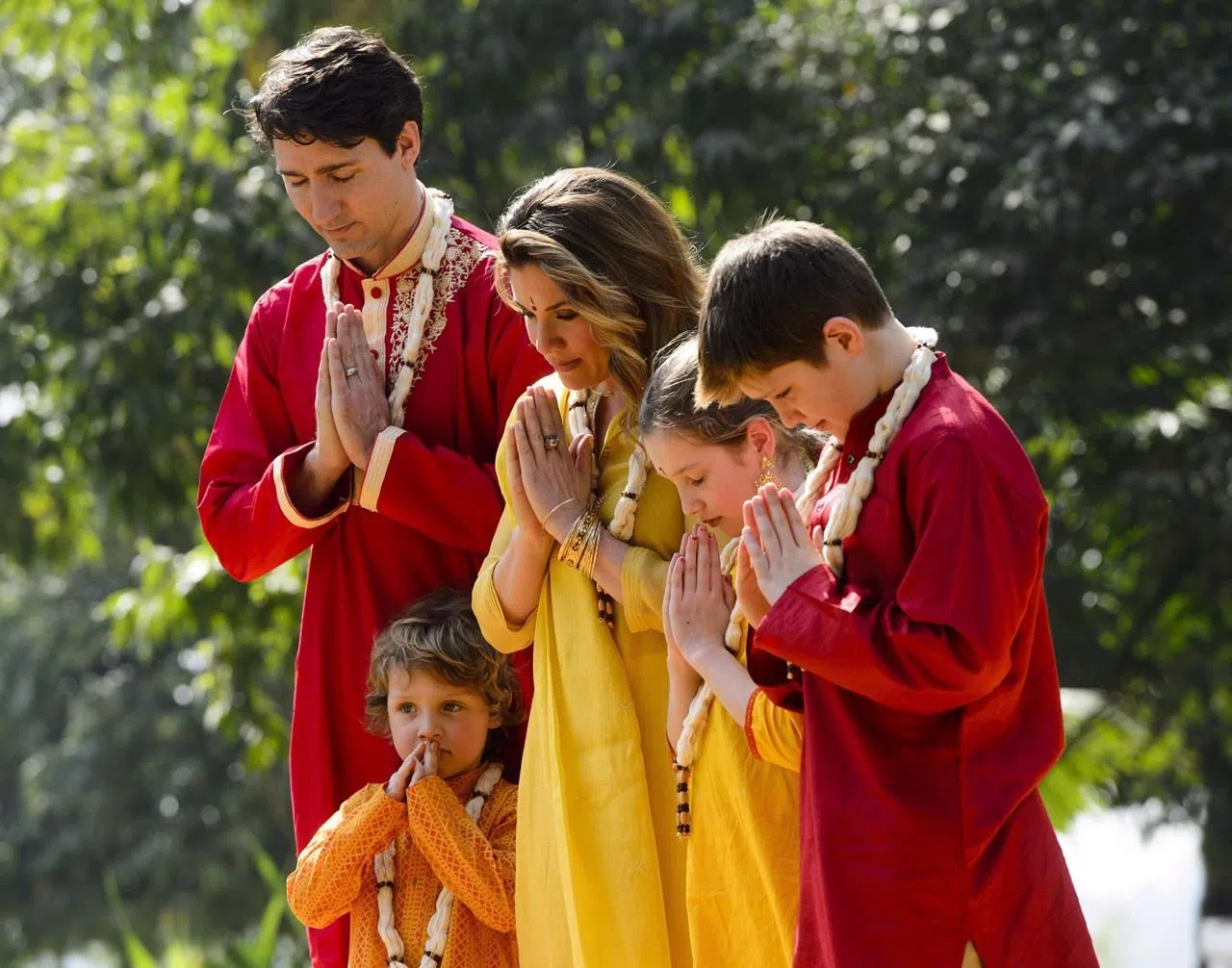
Radio-Canada accused of racism for parody mocking PM’s India trip
MONTREAL — A character playing Prime Minister Justin Trudeau takes a drag from a joint and is suddenly transported into a fantasy world where he is dressed in traditional Indian clothing as talking cows are knocked over by a gorilla with Donald Trump’s signature hair and red tie.
The scene mocking the prime minister’s ill-fated trip to India last February was part of Radio-Canada’s annual end-of-year parody show, during which the national broadcaster satirizes the year’s newsmakers. Called “Bye bye,” the show draws millions of viewers New Year’s Eve and is considered the television event of the holiday season in Quebec.
But this year the French arm of the CBC is on the defensive after a barrage of online criticism from people claiming the sketch was racist and made a mockery of Indian culture.
“This video is completely disrespectful to our cultures. Kicking down cows, ‘imitating’ our dances. Not cool,” Ina Bhowmick, the founder and director of the Montreal cultural company Bollywood Blast, commented under the video on Radio-Canada’s Facebook page.


